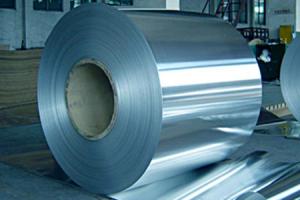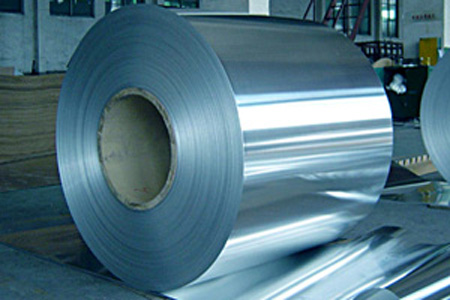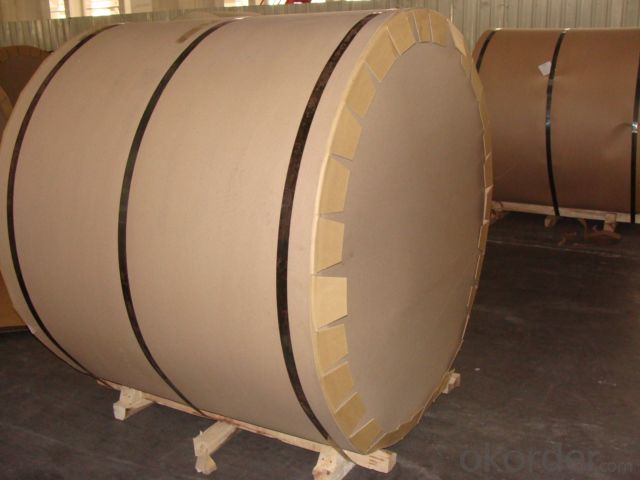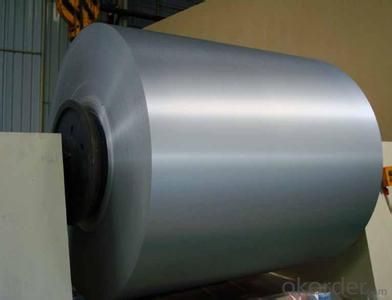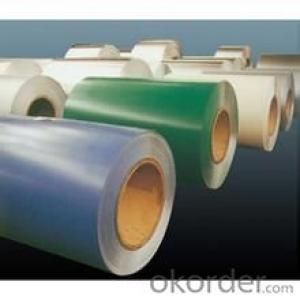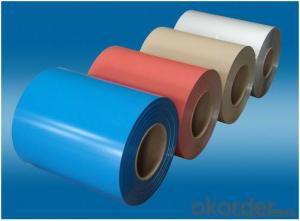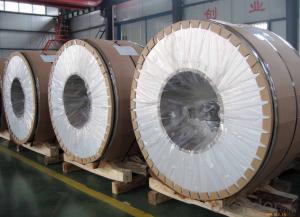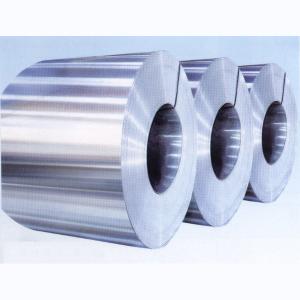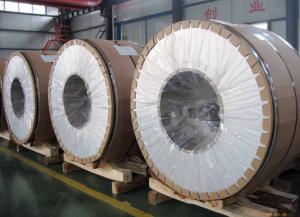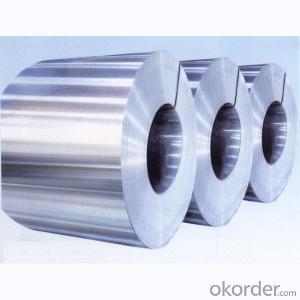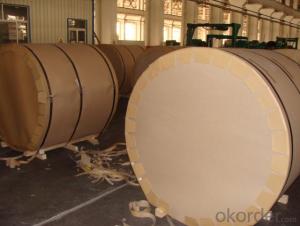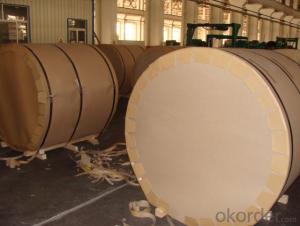Royal Brown Aluminum Coil - Aluminum Mill Finished Coils 8xxx for Constructions
- Loading Port:
- China main port
- Payment Terms:
- TT or LC
- Min Order Qty:
- 8 g/ft
- Supply Capability:
- 100000 g/ft/month
OKorder Service Pledge
OKorder Financial Service
You Might Also Like
1.Structure of Aluminum Mill Finished Coils 8XXX Used in Constructions Description
Aluminum Mill Finished Coils 8XXX Used in Constructions has great ductility, heat conductivity, anti-corrosion and moisture resistance properties.
Aluminum Mill Finished Coils 8XXX Used in Constructions is widely used for electronics, instruments, lighting decoration, packing industry, house decoration, curtain wall, honeycomb-core panel, sandwich panel, aluminum composite panel and aluminum composite pipes.
2.Main Features of Aluminum Mill Finished Coils 8XXX Used in Constructions
• Superior quality of raw material
• Reasonable and stable chemical composition
• Accurate tolerance
• Goode mechanical property
3.Aluminum Mill Finished Coils 8XXX Used in Constructions Images
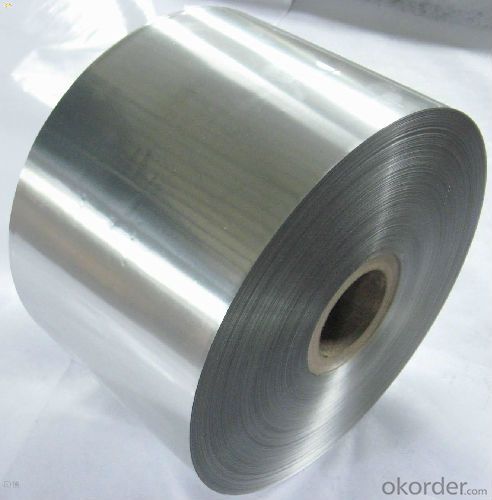
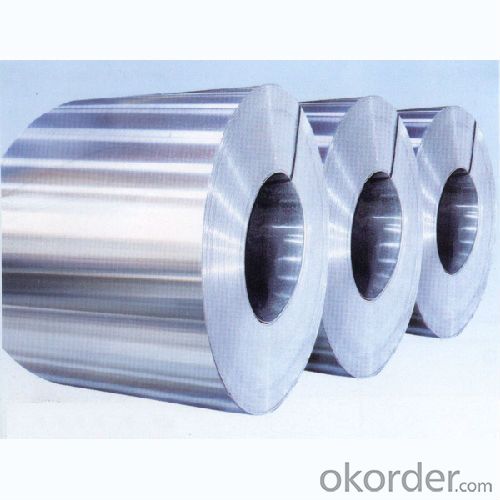
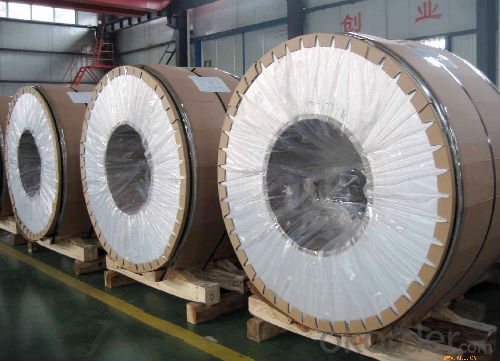
4.Aluminum Mill Finished Coils 8XXX Used in Constructions Specification
Alloy | AA8xxx (AA8011 etc.) |
Temper | H14, H16, H18, H22, H24, H26, H32, O/F |
Thickness | 0.2mm -- 100mm |
Width | 30mm -- 1700mm |
Standard | GB/T 3880-2006,EN,ASTM,JIS |
5. FAQ of Aluminum Mill Finished Coils 8XXX Used in Constructions
A.How to guarantee the quality?
Customers are welcome to our mill to visit and check the products. Besides, we can arrange a third party to test Aluminum Mill Finished Coils 8XXX Used in Constructions.
B. Now which countries do you export your goods?
Now we export to South East Asia,Africa, North America,South America ect.
- Q: Can aluminum coils be used in packaging industries?
- Yes, aluminum coils can be used in packaging industries. Aluminum is lightweight, flexible, and has excellent barrier properties that protect the packaged products from moisture, oxygen, and light. It is commonly used for packaging food, beverages, pharmaceuticals, and other consumer goods due to its durability and ability to preserve product quality.
- Q: Are there any limitations on the surface treatment of aluminum coils?
- The surface treatment of aluminum coils has certain limitations. One limitation pertains to the type of surface treatment suitable for aluminum coils. Anodizing, painting, and powder coating are some options for surface finishes. However, not all treatments are suitable for every application. For instance, anodizing is a durable and corrosion-resistant finish but may not meet the requirements of applications that demand specific colors or designs. Similarly, painting and powder coating offer a wide range of colors and aesthetics but may not match the durability of anodizing. Another limitation concerns the size and shape of the aluminum coils. Surface treatment processes have size and shape restrictions for aluminum coils. For example, anodizing is typically performed in tanks or racks, which may have size limitations. Similarly, painting and powder coating processes may require specific equipment or facilities that cannot accommodate large or irregularly shaped coils. Furthermore, the condition of the aluminum surface affects the effectiveness of the surface treatment. Imperfections or surface defects on aluminum coils can impact the adhesion and durability of the treatment. Proper cleaning and preparation of the aluminum surface are crucial to ensure the effectiveness of the surface treatment. In conclusion, while there are various surface treatments available for aluminum coils, limitations exist regarding the type of treatment, the size and shape of the coils, and the condition of the aluminum surface. It is important to consider these limitations and select the most suitable surface treatment based on the specific requirements and constraints of the application.
- Q: Are aluminum coils suitable for architectural facades?
- Yes, aluminum coils are suitable for architectural facades. Aluminum is a popular choice for architectural facades due to its numerous advantages. Firstly, aluminum is lightweight, which makes it easier to handle and install compared to other materials. This is especially beneficial for high-rise buildings or complex architectural designs. Secondly, aluminum is highly durable and corrosion-resistant. It is naturally resistant to rust and does not require any additional coatings or treatments. This makes aluminum coils suitable for long-term use in various weather conditions, including harsh climates or coastal areas where corrosion is a concern. Furthermore, aluminum coils offer versatility in terms of design and customization. They can be easily formed into different shapes, sizes, and profiles, allowing architects and designers to create unique facades that meet their specific requirements. Aluminum can also be painted or coated in different colors and finishes to achieve the desired aesthetic appeal. In addition to its functional and aesthetic advantages, aluminum is also an environmentally friendly choice. It is a recyclable material, meaning that it can be reused indefinitely without losing its properties. This makes aluminum coils a sustainable option for architectural facades, aligning with the growing focus on green building practices. Overall, aluminum coils are a suitable choice for architectural facades due to their lightweight nature, durability, versatility, and sustainability. They offer a wide range of design possibilities while ensuring long-term performance and low maintenance requirements.
- Q: Why does aluminum foil burn in the microwave but not in the oven?
- an oven uses heat only. microwave uses a different form of energy.
- Q: What are the different coil coating technologies used for aluminum coils?
- There are several different coil coating technologies used for aluminum coils, each offering distinct advantages and suitability for specific applications. 1. Coil Coating with Liquid Coatings: This traditional method involves the application of liquid coatings onto aluminum coils. The coatings can be solvent-based or water-based and are typically applied using roll coating or spray coating techniques. Liquid coatings offer a wide range of color options, excellent chemical resistance, and good adhesion to the substrate. However, they may require longer drying times and can result in uneven coating thicknesses. 2. Coil Coating with Powder Coatings: Powder coatings are electrostatically applied onto aluminum coils in a dry powder form. The coated coils are then heated to melt and cure the powder, forming a tough and durable finish. Powder coatings offer excellent corrosion resistance, UV resistance, and impact resistance. They also have a high deposition efficiency, resulting in minimal waste. However, powder coatings may have limited color options compared to liquid coatings. 3. Coil Coating with PVDF (Polyvinylidene Fluoride) Coatings: PVDF coatings are a type of liquid coating that offers exceptional weatherability and durability. These coatings are known for their excellent resistance to fading, chalking, and chemical exposure. PVDF coatings are commonly used in architectural applications where long-term performance and color retention are crucial. They can be applied using roll coating or spray coating methods. 4. Coil Coating with Polyester Coatings: Polyester coatings are widely used in various industries due to their cost-effectiveness and versatility. These coatings offer good color retention, flexibility, and resistance to abrasion. Polyester coatings are available in a wide range of colors and textures, making them suitable for decorative applications. They can be applied using both liquid and powder coating methods. 5. Coil Coating with Polyurethane Coatings: Polyurethane coatings provide excellent adhesion, flexibility, and impact resistance. These coatings are commonly used in demanding applications where durability and resistance to harsh environments are required. Polyurethane coatings offer good color retention and can be applied using liquid coating techniques. In summary, the different coil coating technologies used for aluminum coils include liquid coatings, powder coatings, PVDF coatings, polyester coatings, and polyurethane coatings. The choice of coating technology depends on factors such as the desired performance characteristics, application requirements, and cost considerations.
- Q: What are the different alloys used for aluminum coils?
- There are several different alloys used for aluminum coils, each with its own unique properties and applications. Some of the commonly used alloys include: 1. 1100 Alloy: This is a commercially pure aluminum alloy with excellent corrosion resistance and high thermal conductivity. It is often used in applications where high thermal or electrical conductivity is required, such as in heat exchangers or electrical conductors. 2. 3003 Alloy: This alloy is a general-purpose aluminum alloy that offers good resistance to atmospheric corrosion and moderate strength. It is commonly used in applications where moderate strength and formability are required, such as in packaging, roofing, or vehicle parts. 3. 5052 Alloy: This alloy is one of the highest strength non-heat-treatable aluminum alloys. It offers excellent corrosion resistance and good formability. It is often used in marine applications, as well as in automotive parts and appliances. 4. 6061 Alloy: This alloy is a heat-treatable aluminum alloy with excellent strength and corrosion resistance. It is often used in structural applications, such as in aircraft components, marine hardware, or bicycle frames. 5. 7075 Alloy: This alloy is a high-strength aluminum alloy with excellent fatigue strength. It is commonly used in aerospace and military applications, as well as in high-stress structural parts. These are just a few examples of the many alloys used for aluminum coils. The specific alloy chosen will depend on the desired properties and intended application of the coil.
- Q: What is the lifespan of aluminum coils?
- The lifespan of aluminum coils can vary depending on various factors such as the quality of the coil, installation method, maintenance practices, and environmental conditions. However, on average, aluminum coils can last anywhere from 10 to 20 years or even longer with proper care and maintenance.
- Q: This question asks about the environmental effects associated with the use of aluminum coils.
- <p>The environmental impacts of using aluminum coils include energy consumption during production, potential release of greenhouse gases, and waste generation. Aluminum production requires significant energy, contributing to carbon emissions. Additionally, the extraction of bauxite, the primary source of aluminum, can lead to habitat destruction and water pollution. However, aluminum is highly recyclable, and recycling it saves energy and reduces waste. Proper disposal and recycling practices can mitigate some of these impacts, making aluminum a more sustainable choice when managed correctly.</p>
- Q: Can aluminum coils be used in the production of aluminum downspouts?
- Yes, aluminum coils can be used in the production of aluminum downspouts. Aluminum coils are commonly used in the manufacturing process of downspouts as they can be easily formed and shaped into the desired downspout design. The flexibility and durability of aluminum make it an ideal choice for downspout production, ensuring longevity and resistance to corrosion.
- Q: This question asks for a comparison of the costs involved in purchasing new aluminum coils versus recycling old ones.
- <p>The cost of buying new aluminum coil versus recycling old ones can vary significantly based on several factors including market prices, quality of the recycled material, and the cost of recycling processes. Generally, recycling aluminum is more cost-effective as it requires less energy and resources compared to producing new aluminum from raw materials. The cost of recycled aluminum can be as low as half of that for new aluminum. However, the exact cost will depend on current market conditions and the specific requirements of the aluminum coils in question. It's advisable to get quotes from suppliers and recycling companies to determine the most economical option for your specific needs.</p>
Send your message to us
Royal Brown Aluminum Coil - Aluminum Mill Finished Coils 8xxx for Constructions
- Loading Port:
- China main port
- Payment Terms:
- TT or LC
- Min Order Qty:
- 8 g/ft
- Supply Capability:
- 100000 g/ft/month
OKorder Service Pledge
OKorder Financial Service
Similar products
Hot products
Hot Searches
Related keywords
